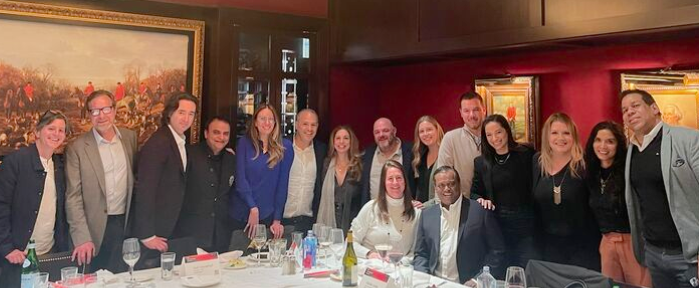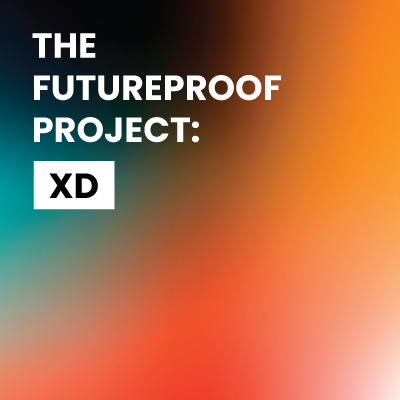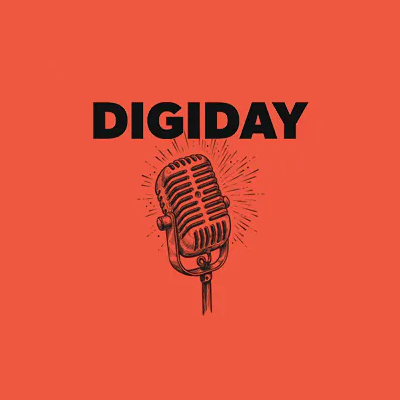Blockchain: Trust in the Future

By Babs Rangaiah
A few weeks ago, we gathered a group of CMO's together for dinner and drinks at the Capital Grille in Manhattan, for the 3rd in a series of web 3 sessions called #thefutureproofproject.

It turned out to be a robust enough discussion that even on a night that saw the baseball season open, and Donald Trump get indicted, it felt like we were the real story. This session focused on Blockchain and was moderated by yours truly and featured a panel of experts:
Stacy Huggins , Co-Founder, MadHive: When Stacy cofounded Madhive, their mission was to reduce costs and drive greater efficiencies in the digital media buying supply chain, by providing brands with transparency of the fees taken by intermediaries.
Matt Wasserlauf , CEO, Blockboard: Blockboard offers a proprietary platform that uses blockchain technology to ensure transparency and accountability in advertiser's investment in the video ecosystem.
Carolina Abenante , ESQ., Founder, NYIAX: As the founder of NYIAX, and as a lawyer, Carolina spoke of NYIAX as a compliance engine that ensures all transactions are compliant with industry regulations and uses Blockchain as a way to make digital advertising more secure and privacy compliant, with technology that helps to protect customer data.
The thing that I loved about this session, beyond the educational and informative part of it, was how raw & passionate it was. To me, that's a much more exciting way to engage in highly complex topics. Indeed, I opened the session by referencing the two different ways I've heard blockchain described; one comical and one provocative:
- Blockchain is everything you don't understand about finance and everything you don't understand about technology combined☺
- Blockchain will do for transactions what the Internet did for communications
It was an important session, because most people are averse to even discussing blockchain because of its link to crypto and the collapse of FTX. But during the panel it became evident that blockchain is much more than crypto and has the potential to be a groundbreaking solution for a number of our current ills, not just for marketing, but for us as a society. We heard that at its heart, blockchain is a way to establish and insure trust. Which is something we need more than ever right now. Via encryption and smart contracts, blockchain provides a record of transactions. These can be financial, but it isn't limited to that. With blockchain's ability for security and immutability, it can be a potential solution for things like voting, real estate, taxes and more day to day things like tracking tickets to ballgames and concerts, supply chains, or as way to establish ownership, and provenance. The use cases most obvious for marketing in the short term were highlighted as:
- Loyalty programs: Blockchain can be used to create loyalty programs that reward customers for their engagement with brands.
- Provenance: Blockchain can be used to gauge provenance of products, supply chains, news, etc... We had important and useful discussions about how blockchain can be potentially used to protect against "fake news" by understanding origins of news stories and track deep fake videos before being altered, etc...
- Ad Measurement: Blockchain can be used to measure the impact of marketing. For example, the company AdChain is already testing blockchain to track the performance of digital advertising campaigns.
As the discussions expanded to the broader group, we talked about some of the issues preventing blockchain from scaling and additional ways blockchain will potentially impact marketing as it continues to develop. Key takeaways were as follows:
1. Blockchain has a marketing problem.
Amit Shah, the CEO of Instalilly.ai, pointed out that the relatability of the technology is missing—an "outcome orientation is being overwhelmed by action orientation." In other words, the focus on why we should care is being obscured by people struggling to understand how it works.
2. Blockchain can save marketers a lot of money.
... and saving money helps marketers make money. GetJoy CMO, Cassin Chaisson, addressed the perception issue in the eyes of a CMO very clearly: "My job is to drive revenue. And I want to pay less for performance." To that end, eliminating duplicate audiences and digital ad fraud can go a long way towards accomplishing just that. Matt Wasserlauf, the CEO of Blockboard told us about a test campaign with Chipotle where a relatively small investment led to a surge in measurable sales. That is the most compelling use case for marketers in the short-term.
3. Truth is in peril. Blockchain can help.
Mike Baer suggested that the greated potential of blockchain may be "un-obfuscating bull$#*t." As a a timely and critical example of this, Traction Client Partner, Lauren Evans posited that "this technology should be able to authenticate what votes are cast in elections"
4. Accountability for carbon emissions.
Jay Altschuler, who leads media at Mastercard explained how Mastercard has made the admirable ESG commitment to reach Net 0 ambitions in the next 10 years. Digital Marketing is a big contributor to the current level of emissions so if blockchain could help create proof for the ecosystem, it would be tremendously valuable for enterprise brands.
5. Web 2.5 is already here.
Stacy Huggins, who was a founder of MadHive, pointed out there are a lot of "Web 2.5" companies in the space that are helping brands with API calls to create value that exist right now, but aren't well known or well understood. The adoption of these technologies may need to come before it makes sense to invest in building new technologies.
6. Blockchain fits in the cultural zeitgeist.
Gary Tsifrin, the CEO of Gravvy spoke of the potential to be rewarded for your content, the ability to have ownership of your voice, your contributions, your history, your fundamental truth... that is the essence of what blockchain empowers, and that collision with culture is what makes the future of blockchain inevitable.

We closed the session with a plea to reframe the way we think about these new technologies. Lets not just try to force fit legacy approaches to new technologies, but rather imagine how they can be used to solve problems in new ways that leverage the benefits offered by the technology. In this case we need to restore trust in our institutions. Blockchain can potentially do that.
If youre interested in joining #thefutureproofproject as an expert speaker, marketer or supplier in the web3 space, please contact me or Adam Kleinberg CEO, Traction.

It’s highly likely that your marketing and leadership team are considering what your strategy should be for Web3 technologies including Extended Reality, or XR.

Digiday's Mike Burgi caught up with our CEO, Adam Kleinberg last week. Check out this recap about "How Traction evolved into a marketing accelerator."

Over 300 people showed up in New Orleans for the Digiday Media Buying Summit last week.